African Diaspora Seeks More Opportunities From Next US President

Ramon Taylor/VOA News
NEW YORK — Sisters Rammy Hassan and Sara Bosompel came to the United States from Ghana 12 years ago on the same day, with the same dream: to earn a living as a citizen of the country.
As voters in this year’s presidential election, they want a leader who will recognize the economic contributions of immigrants and be a role model for the country’s taxpayers.
«The foreigners are the ones who are doing most of the job here. Because we like to work,» said Hassan, who became a U.S. citizen two years ago.
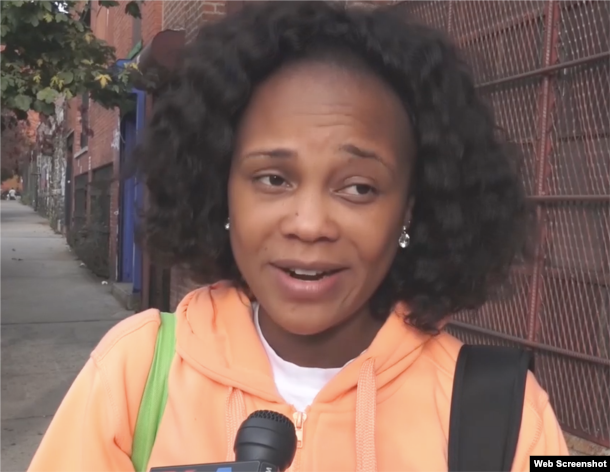
Rammy Hassan came to the United States from Ghana 12 years ago. «The foreigners are the ones who are doing most of the job here. Because we like to work,» said Hassan, who became a U.S. citizen two years ago.
The two sisters, along with nearly 2 million more in the African diaspora, belong to one of the nation’s fastest-growing immigrant groups. As new citizens, they understand the impact of their participation in November’s elections on the future of U.S. policy.
Bosompel, for her part, feels strongly that this election’s candidates should lead the country by example by paying their share of taxes, a not-so-subtle jab at Republican presidential nominee Donald Trump, who claimed during the first U.S. presidential debate at Hofstra University that avoiding taxes «makes me smart.»
«So we are the ones that are stupid paying the taxes?» Bosompel asked. «No, that’s supposed to be equal. When you make more money, you pay more taxes. When you make less money, you pay less money.»
Bosompel insists she doesn’t have anything against Trump, but lauds Democratic nominee Hillary Clinton’s experience as a politician.
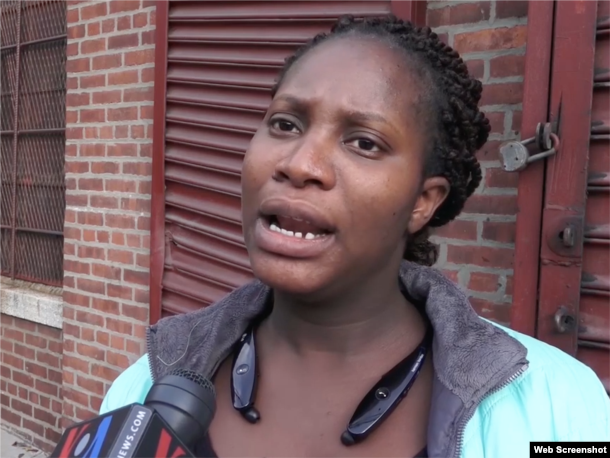
Sara Bosompel came to the United States from Ghana 12 years ago on the same day as her sister, Rammy Hassan. Both have the same dream: to earn a living as a citizen of the country.
The sisters both hope that whomever is sworn in will address their top concerns, including economic and racial justice.
«If they punish [law enforcement], they will think twice before pulling a gun,» said Bosempel, referencing the recent cases of police shootings of unarmed black men in the U.S. «It doesn’t have to happen to your family member to see how it feels.»
Safety-net programs
Sub-Saharan African immigrants in the U.S. are among both the highest educated and poorest in the country, according to the Migration Policy Institute.
Research done in 2013 suggests 20 percent are likely to live in poverty, higher than the overall foreign-born and native-born populations, at 19 and 15 percent, respectively.
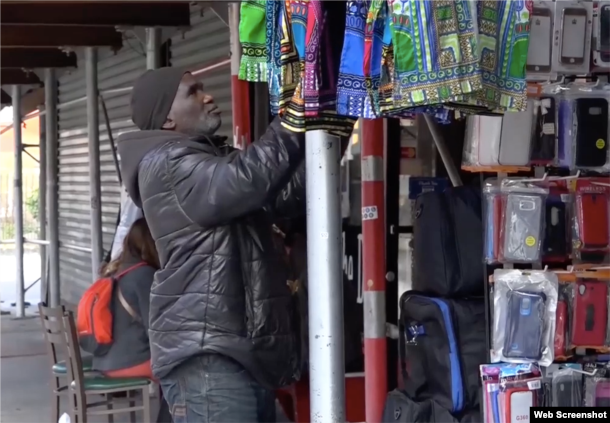
At nearly 2 million strong, the African diaspora is one of the fastest growing immigrant groups in the country.
To assist communities in need of greater public funding, organizations such as the Black Alliance for Just Immigration (BAJI) educate and encourage immigrant communities to organize on issues of racial, social and economic justice.
Carl Lipscombe, BAJI programs manager, says access to safety net programs is crucial for the diaspora community as a whole.
«African communities still face an uphill battle to obtain work authorization, to obtain equal employment, to be lifted out of poverty,» Lipscombe said.
Lipscombe argues that the state and local races across the country are even more consequential to day-to-day lives than the presidential race.
«They are the ones voting on whether or not the police force gets more money or whether education is funded, whether housing is funded, where affordable housing is built,» he said. «The average person will never meet Hillary Clinton or Donald Trump, but they can walk right into their local councilperson’s office.»
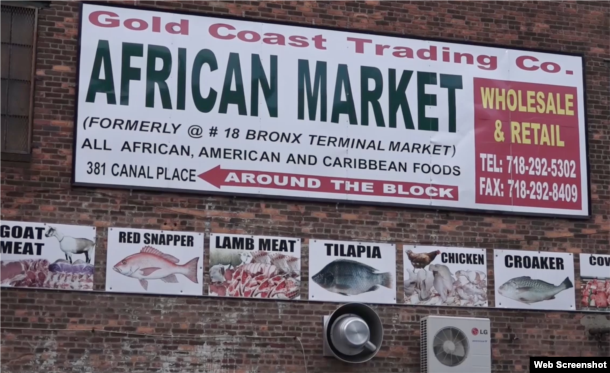
Gold Coast Trading Company is a West African goods market based in the Bronx, New York.
A unified electorate
By becoming more involved in the political process, naturalized citizens play a greater role in influencing issues that impact immigrants, such as comprehensive immigration reform.
Historian Mamadou Diouf, who teaches African Studies at Columbia University, says African communities in New York are a prime example of how to «Americanize.»
«If you become an elected resource, you are able to negotiate your place within the system,» Diouf said.
Among both citizens and newly arrived immigrants, Diouf claims that the African diaspora population often «stays together.» The result, he says, is a unified political network that achieves change within the community.
«For the documented ones, it’s also their ways of protecting the non-documented, their ways of being able to negotiate, and elections are crucial for voiced negotiation,» Diouf added.
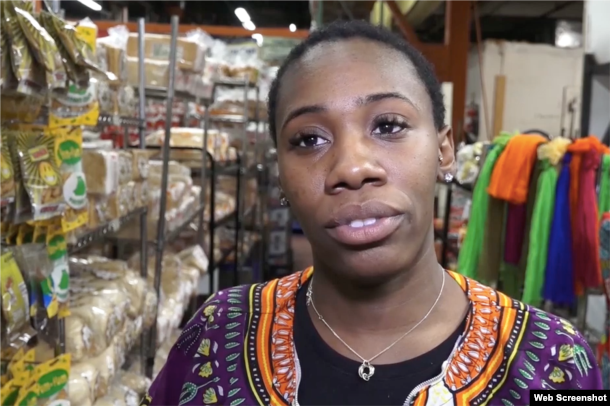
Deandra Harris, a cashier at Gold Coast Trading Company — a West African goods market based in the Bronx, New York, says, «If you do not vote, you’re kind of just giving your vote away to whomever does.»
It’s that very mindset that Deandra Harris, a cashier at Gold Coast Trading Company — a West African goods market based in the Bronx, New York — takes with her to the polls.
«If you do not vote, you’re kind of just giving your vote away to whomever does,» said Harris. «Especially for the people that’s not able to vote, you need to vote and be the voice for those people.»
Nigerian-American Sidney Imobhio, who moved to the U.S. 20 years ago, says he has never missed an election since becoming a U.S. citizen. Even when the choices for president are not perfect, he says there is only one condition that truly matters.
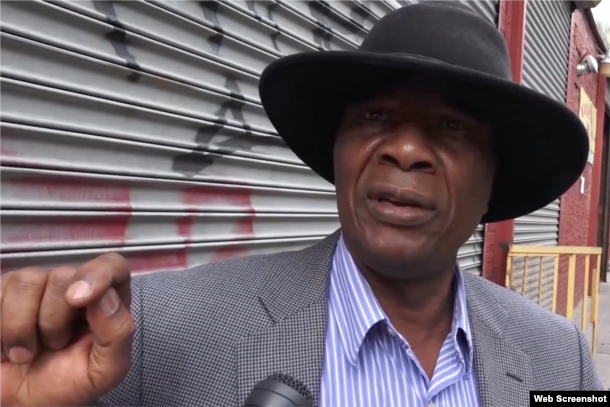
Nigerian-American Sidney Imobhio, who moved to the U.S. 20 years ago, says he has never missed an election since becoming a U.S. citizen.
«Whether you can deliver. That is what we should be thinking of,» Imobhio said. «Nobody is perfect. We have two candidates that are not perfect, so we should single one out.»
The basis of his decision for president is one shared by many foreign-born Americans: Who is better prepared to earn respect from the international community, and provide opportunities for others to achieve the American Dream?
For Imobhio, who travels frequently to his native Nigeria, the next president must be able to retain the world’s respect. «Persuasion, persuasion,» he said. «Good relationships can achieve any goal.»

